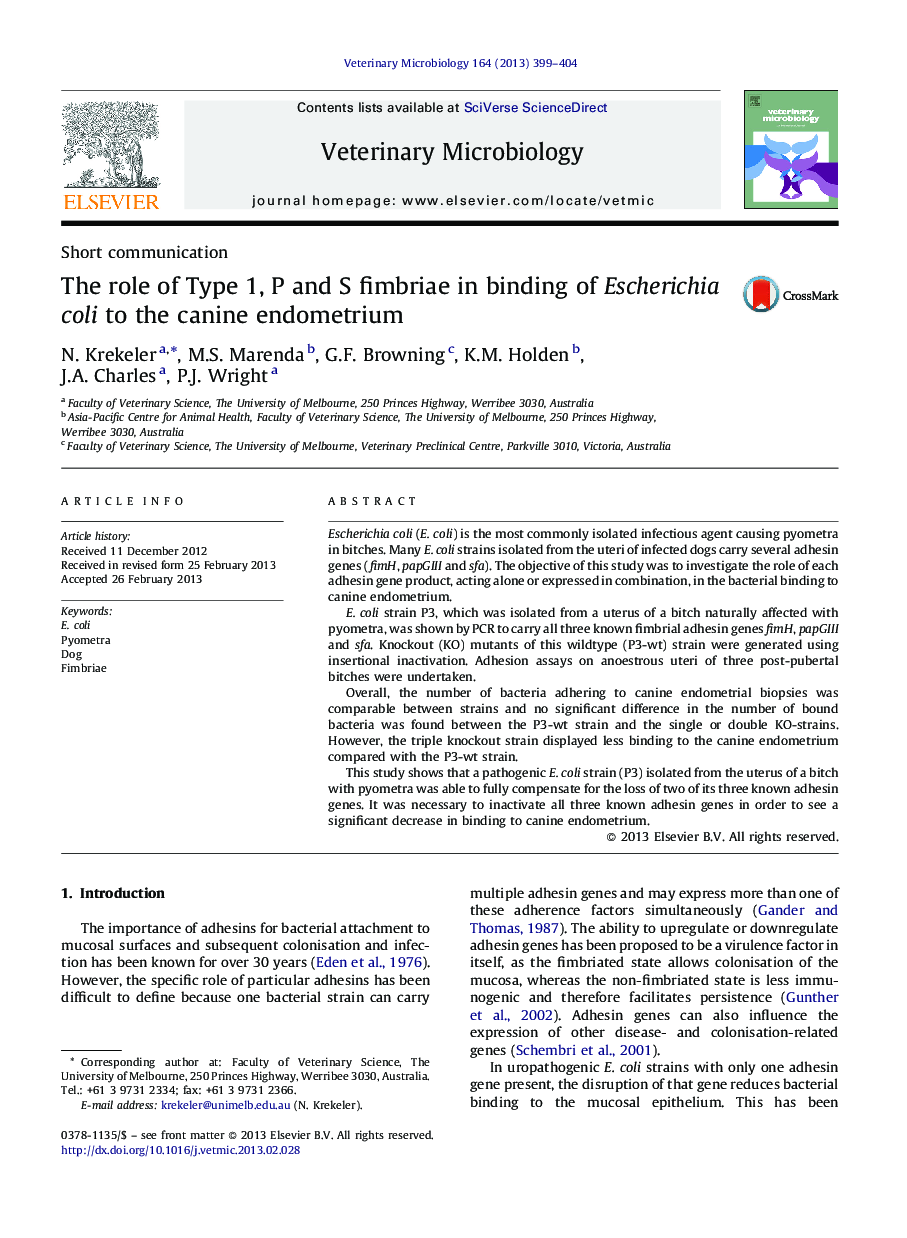| Article ID | Journal | Published Year | Pages | File Type |
|---|---|---|---|---|
| 5800927 | Veterinary Microbiology | 2013 | 6 Pages |
Escherichia coli (E. coli) is the most commonly isolated infectious agent causing pyometra in bitches. Many E. coli strains isolated from the uteri of infected dogs carry several adhesin genes (fimH, papGIII and sfa). The objective of this study was to investigate the role of each adhesin gene product, acting alone or expressed in combination, in the bacterial binding to canine endometrium.E. coli strain P3, which was isolated from a uterus of a bitch naturally affected with pyometra, was shown by PCR to carry all three known fimbrial adhesin genes fimH, papGIII and sfa. Knockout (KO) mutants of this wildtype (P3-wt) strain were generated using insertional inactivation. Adhesion assays on anoestrous uteri of three post-pubertal bitches were undertaken.Overall, the number of bacteria adhering to canine endometrial biopsies was comparable between strains and no significant difference in the number of bound bacteria was found between the P3-wt strain and the single or double KO-strains. However, the triple knockout strain displayed less binding to the canine endometrium compared with the P3-wt strain.This study shows that a pathogenic E. coli strain (P3) isolated from the uterus of a bitch with pyometra was able to fully compensate for the loss of two of its three known adhesin genes. It was necessary to inactivate all three known adhesin genes in order to see a significant decrease in binding to canine endometrium.
